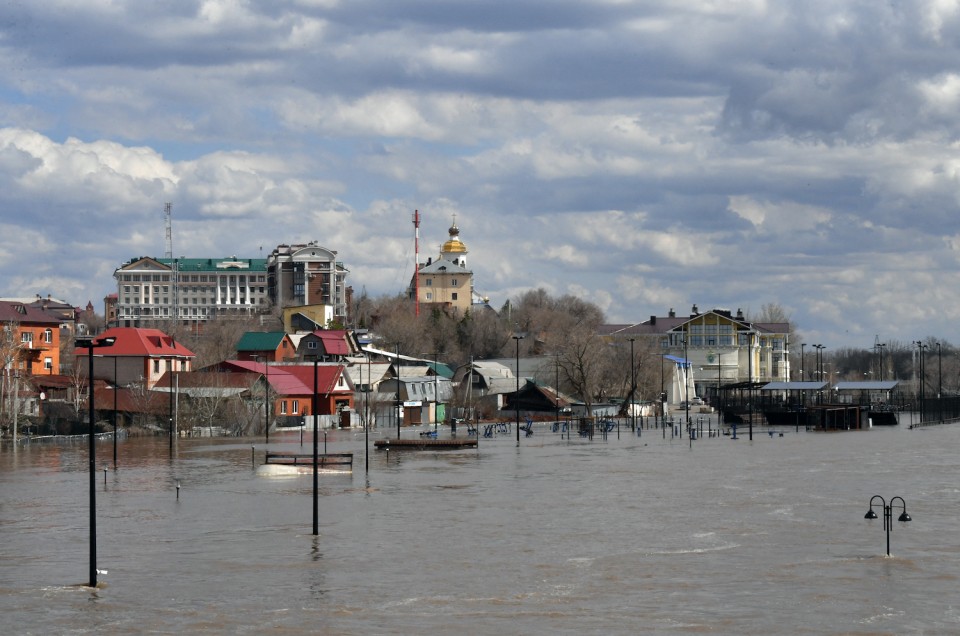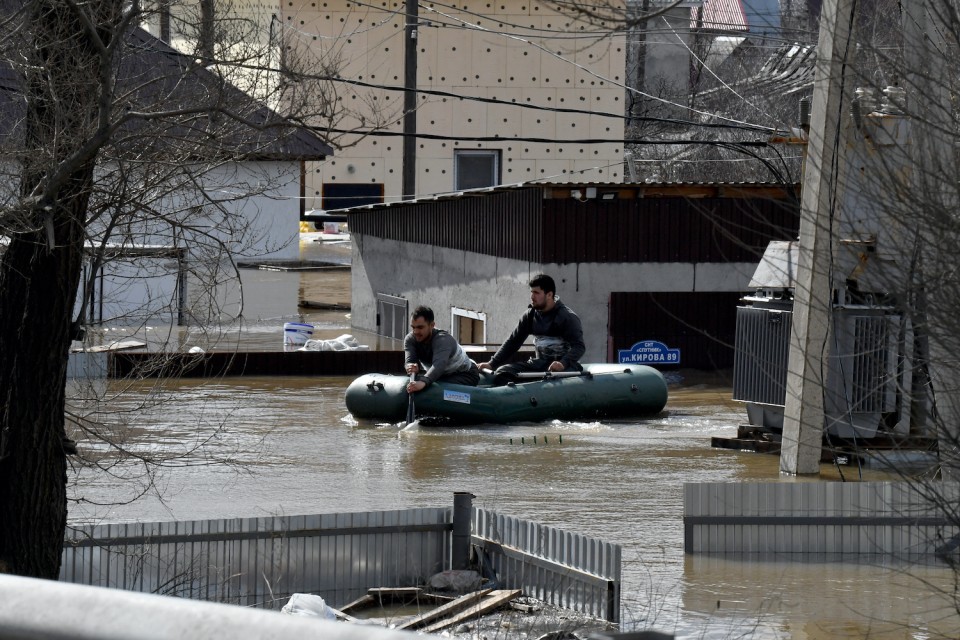
ORENBURG, Russia, April 13, 2024 (AFP) – Russian emergency services on Saturday said they had evacuated thousands of people from the Orenburg region in the south of the Urals as flood water continued to rise.
Fast-rising temperatures have melted snow and ice, and along with heavy rain have caused a number of major rivers that cross Russia and Kazakhstan to overflow this month.
In the city of Orenburg, one of the worst affected areas in Russia, the Ural River breached its banks, submerging streets and residential areas and water levels continued to rise Saturday.
On Saturday afternoon, the river level reached almost 12 metres (39 feet), more than 2.5 metres above the level considered critical.
The Ural River flows through the centre of Orenburg.

Flood water covered the embankment promenade and swirled around houses and an high-rise apartment blocks built close to the river, an AFP journalist saw.
Almost 14,000 people have been evacuated from Orenburg and the surrounding region, according to authorities.
Eldar Rakhmetov, an official from the Ministry of Emergency Situations involved in the evacuation said: “There has been an increase in the number of homes flooded since this morning and more areas are being evacuated.”
Local residents were using rubber dinghies to try to retrieve pets and belongings from flooded houses and some areas were left without power.
Valery, 64, a local factory worker, was one of those evacuated Saturday by a police truck.
“The most important thing is that (my house) does not get looted. That is what I am worried about. Other than that, it is fine! We will survive,” he said.

– ‘Treacherous water’ –
The Kurgan region further east was also urging people to evacuate, anticipating the arrival of flood water.
The governor, Vadim Shumkov, urged residents likely to be affected to leave now as the level of the River Tobol is forecast to rise sharply due to melting ice.
“The water is treacherous and when there is so much of it, it rises unpredictably,” Shumkov warned residents on Telegram, urging them to leave with valuables and pets.
“If you do not leave in time, you might not be able to sit it out in the attic or on the roof,” the governor added.
In Kazakhstan, which shares around 7,500 kilometres (4,660 miles) of border with Russia, flooding affected the outskirts of the northern city of Petropavlovsk, which has around 220,000 residents, leaving some areas without power or mains water.
More than 103,000 people, many of them children, have been evacuated in the vast Central Asian country, where almost 5,000 homes have been flooded out, according to the emergency situations ministry.
Climate change is associated with more frequent extreme weather events such as floods.
In the Russian Urals city of Orsk, where a dam protecting the city broke earlier this month, residents held rare protests this week over the local authorities’ handling of the crisis.
Russian President Vladimir Putin held a meeting on the floods on Thursday but has not visited the affected regions.







